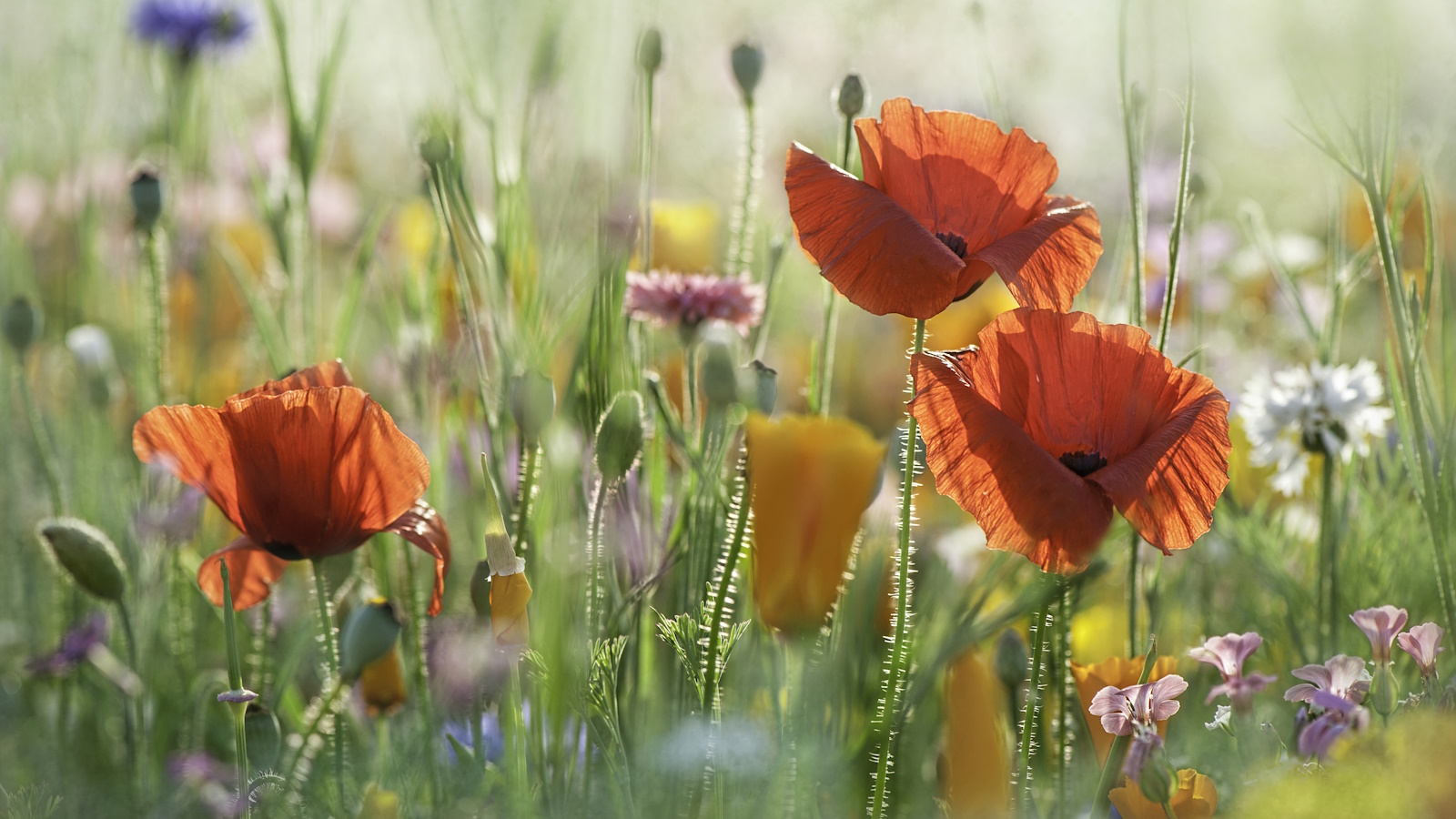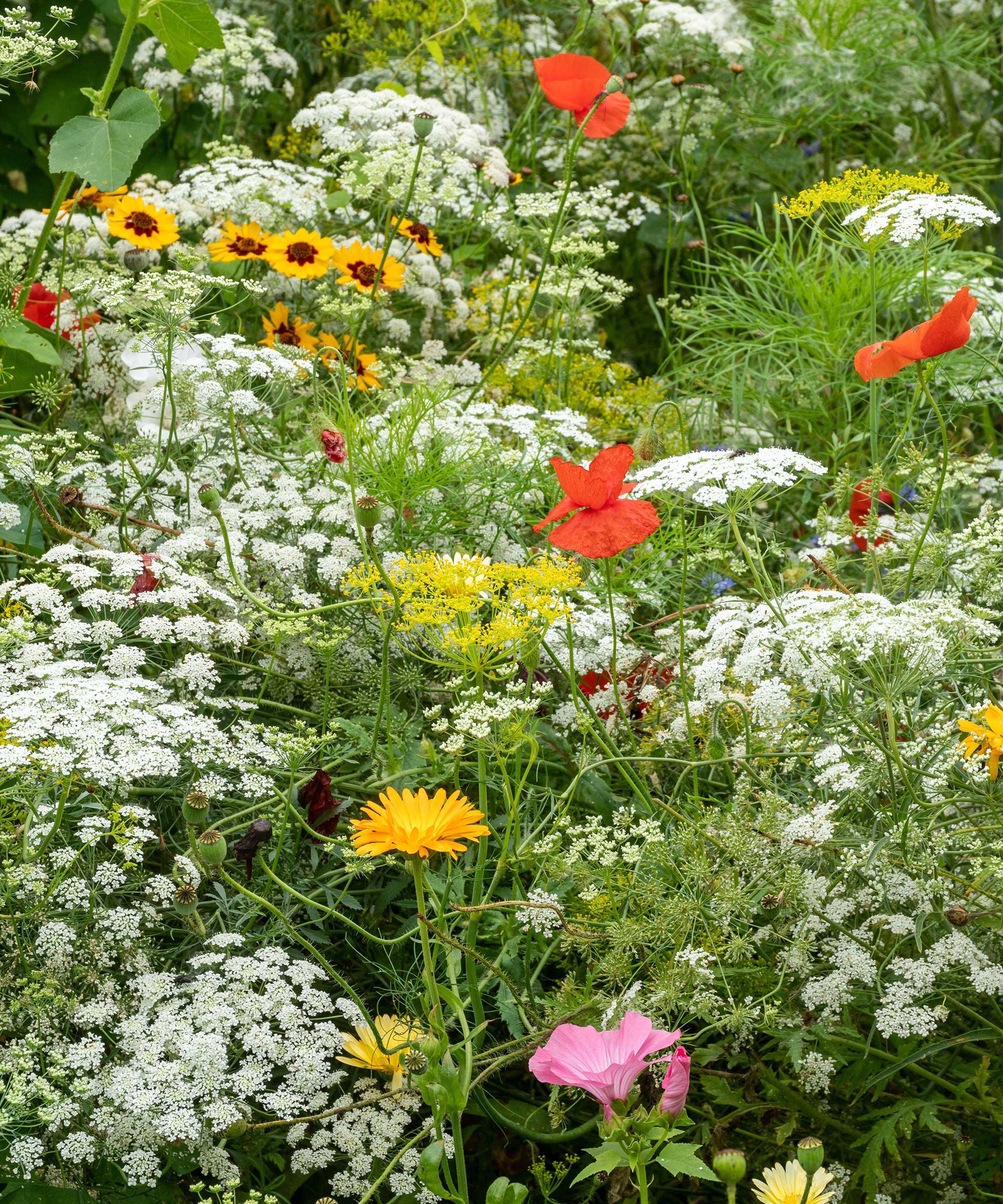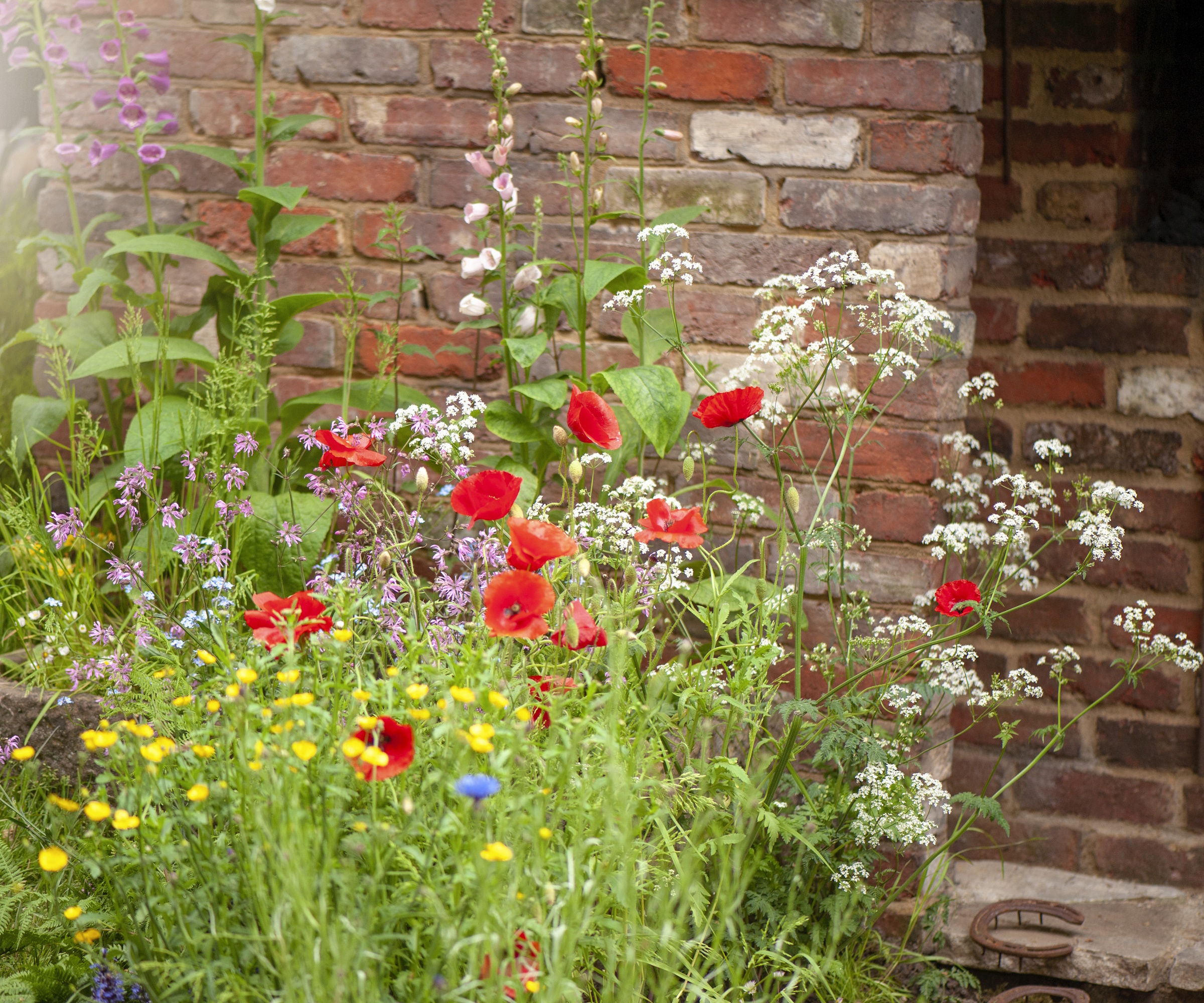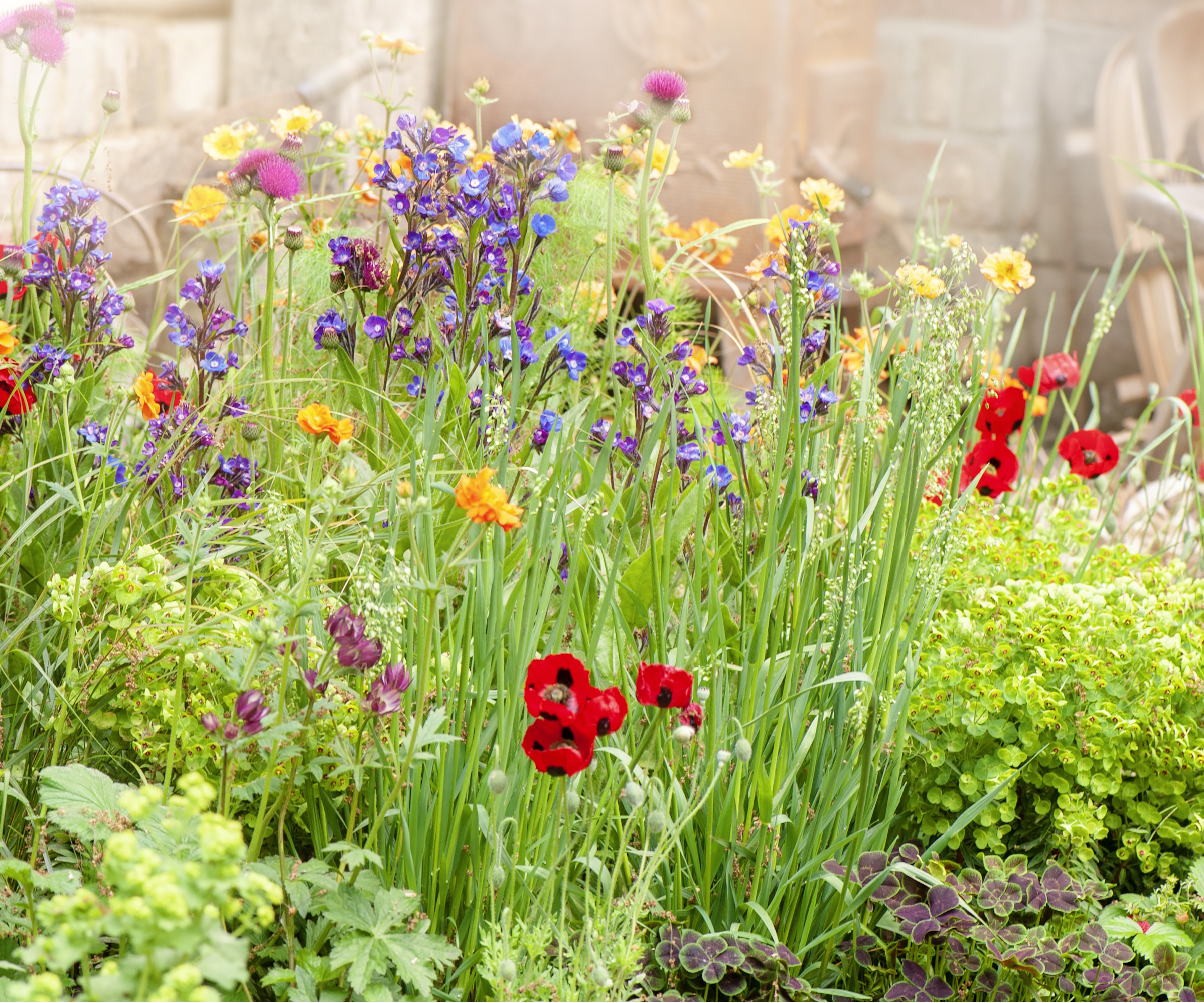
In recent years, the popularity of wildflower gardens and letting plants grow as they please in our backyards has skyrocketed. You can create some beautiful spaces with wildflowers that are also great for the planet. But can you just let these flowers grow or do they require any special care?
If you've planted a wildflower meadow or you're planning a wildflower garden, you may be asking yourself what kind of maintenance it requires. It's no secret that wildflowers are good plants for pollinators and you may be keen to keep any growing in your yard in healthy condition so that these beneficial insects keep visiting.
We've spoken with experts to find out if you can fertilize wildflowers and they revealed all about what it takes to promote healthy wild blooms.

Can you fertilize wildflowers?
In short, you can fertilize wildflowers but it isn't always necessary. This is especially true if you are growing wildflowers native to your area.
'They are typically adapted to the local soil and climate conditions so they may not need additional fertilizer if they are well-suited to your area,' notes Paris Lalicata, head of plant education and community at The Sill.

If you have wildflowers growing in your yard that you didn't intentionally plant, they are likely to be even better adapted to the soil than when you plant wildflower seeds in your yard.
'A general rule of thumb is that if there is something growing in the area you are planting wildflowers, there isn’t a need do any special soil amendments for growing them,' says Tabar Gifford, master gardener from American Meadows.
Many gardeners will see wildflowers pop up when trying different No Mow May ideas, allowing the self-seeding flowers to grow amongst lawn rather than being cut down. Where something is growing and thriving naturally, it is likely happy without any fertilizer.
You may also be cautious of how fertilizers can harm pollinators, and many wildflowers are among the flowers that attract bees, butterflies and more.
How to choose the best fertilizer for wildflowers

Just because you don't have to fertilize wildflowers, doesn't mean you can't. In fact, if you know your soil health needs improving and you're keen to have a wildflower patch in your backyard, fertilizing can help boost the number of nutrients available for your wildflowers.
'When deciding what to use to fertilize or make soil amendments, first you’ll want to understand the soil type you’re working with,' says Tabar. 'Adding some additional compost or organic materials will help improve the soil quality and add nutrients to your planting area,' she adds.
Take a close look at NPK plant fertilizer numbers when choosing a fertilizer to use on your wildflowers. This refers to the amount of nitrogen, phosphorus and potassium in the plant food.
'You should choose a low-nitrogen fertilizer or one specifically formulated for wildflowers,' says Paris. 'A high-nitrogen fertilizer will promote excessive leaf growth instead of abundant blooms,' she adds.
Another option is to make plant fertilizer using organic materials, like using banana peels as fertilizer or orange peels which are good for plants. Although, experts note it might not be the most effective to apply these materials directly to your wildflowers.
'If you’re adding organic materials such as food scraps, it’s best to allow them to fully compost before applying to your soil,' says Tabar. 'That way the nutrients will be available to support the growth of your wildflowers,' she adds.
Grow wildflowers at home
This water-soluble fertilizer is low in nitrogen and effective at encouraging brighter blooms that last for longer.
This perennial mix of wildflower seeds includes 15 easy-to-grow flowers for a beautiful display that attracts pollinators.
Keep your wildflower patch happy by keeping lawnmowers away with this pretty sign that offers a polite reminder.
FAQs
How much fertilizer should you give to wildflowers?
Wildflowers do not necessarily need fertilizing but doing so can boost blooms - especially if you are working with poor soil quality. You should only use a gentle or organic fertilizer for wildflowers and follow manufacturer instructions for the amount to apply.
'If you overfertilize them it will lead to nutrient toxicities in the soil,' notes Paris Lalicata, head of plant education and community at The Sill. 'This can be harmful or even fatal to plants. Symptoms can vary on the species but generally you’ll notice wilting, burning and chlorosis on the foliage,' she adds.
While you can fertilize wildflowers, it isn't necessary to keep them happy and healthy in your yard. If you have wildflowers doing well, it's a sign that you don't need to interfere. If you want to get started with wildflowers, try making wildflower seed bombs and discover how to create a wildflower front yard.







